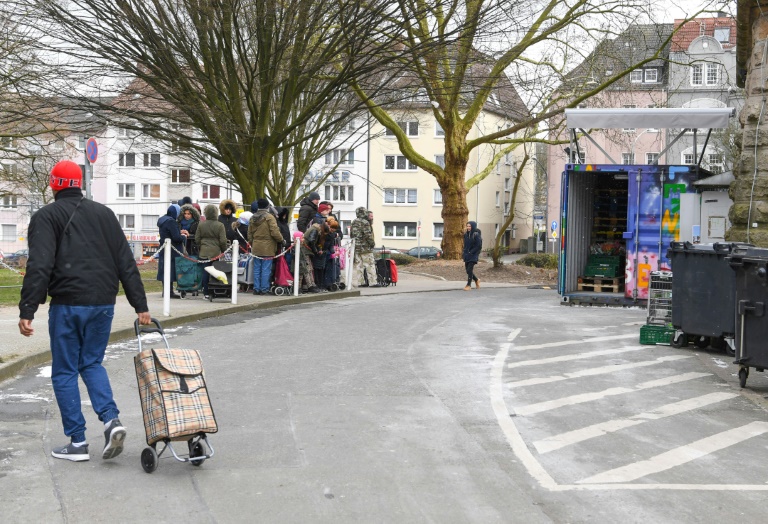Police investigation swings into gear after constables go missing near Grasmere plaza
The Essener Tafel charity in the western city of Essen said non-Germans could start registering for the service again from Wednesday.
“Right now, the ratio of Germans and foreigners in need is appropriate,” the group’s chairman, Joerg Sartor, told the Bild daily.
“If new bottlenecks occur, we will have to adapt again.”
From now on, preference would be given to the elderly, single parents, young families and those with disabilities — regardless of their nationality, Sartor added, citing a decision made by the group’s board.
The charity triggered a storm of controversy earlier this year when it announced it would only accept new clients if they had German identity papers, claiming a huge influx of migrants was displacing needy locals.
Sartor said at the time that especially elderly Germans and single mothers had been intimidated by an increasingly aggressive atmosphere as the number of foreigners queuing for free food had risen to three-quarters of the total.
The migrant ban, which the charity always insisted was temporary, sparked howls of protest across the country and none of Germany’s more than 900 other food banks followed suit.
Even Chancellor Angela Merkel weighed in on the controversy, calling the Essener Tafel’s decision “not good”.
Vandals also sprayed the word “Nazis” on the charity’s building and vans, an act police said they believe was in response to the ban.

Even Chancellor Angela Merkel weighed in on the controversy, calling the Essener Tafel’s decision ‘not good’
Some 1.2 million asylum seekers have come to Europe’s biggest economy since 2015 — more than half from war-torn Syria, Iraq and Afghanistan.
The influx sparked a xenophobic backlash that has fuelled the rise of the far-right Alternative for Germany (AfD) party.
The AfD had defended Essener Tafel on social media, complaining that an “onslaught of migrants” was displacing Germans and “if you fight back, you’re a Nazi”.
Like other similar organisations, the Essener Tafel collects surplus food that would otherwise be discarded by supermarkets and other businesses to prepare and serve it to the poor.
Typically, people have to register to qualify for regular free meals by proving that they are recipients of unemployment or other social benefits.
Download our app